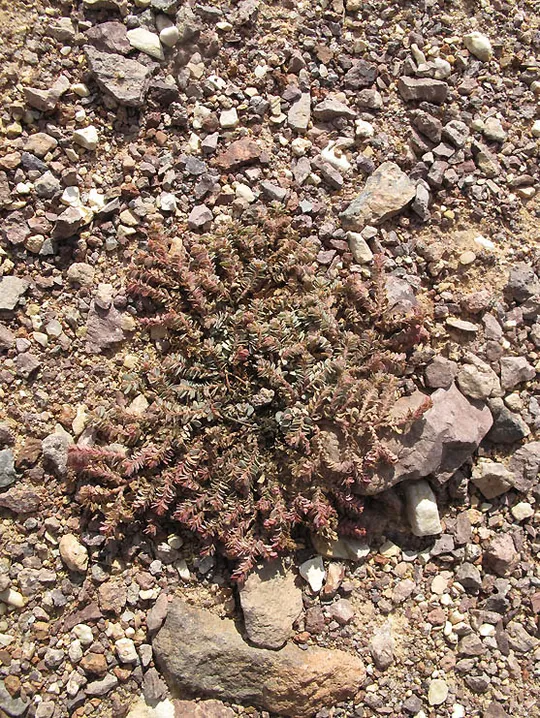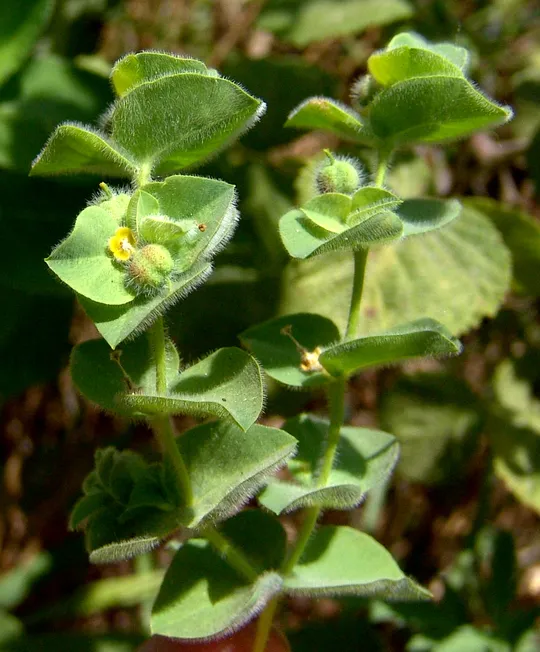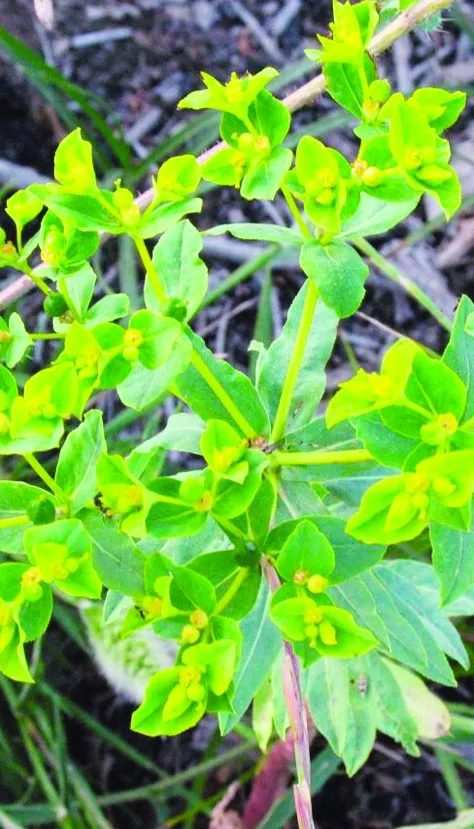Tree Spurge, Woody Spurge
Euphorbia dendroides
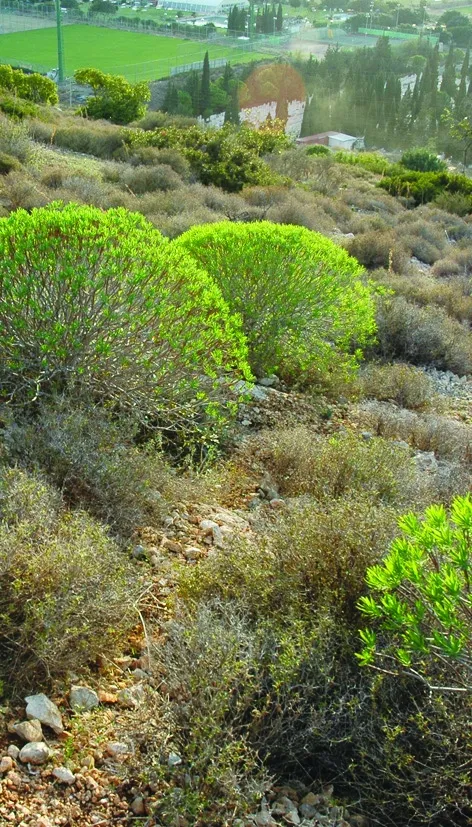
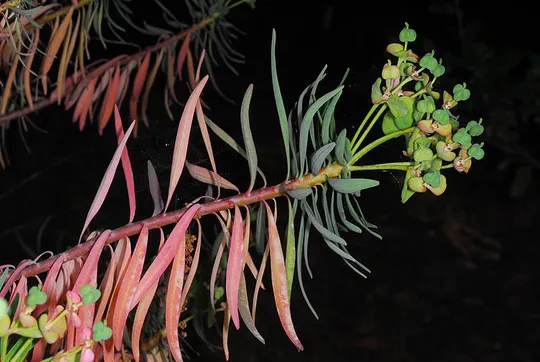
Euphorbia dendroides is found in Israel only on the
western slopes of the Carmel in the Wadi Siah area. The main population grows south of the wadi, and was destroyed by the spread of the main Haifa municipal cemetery. A few plants also grow
north of Wadi Siah on the
southern slope of a steep limestone incline. In a book from the estate
of Aaron Aaronson, the species is
noted from the Philistian Plain. We believe this record to be mistaken, resulting from
the misidentification of a herbarium specimen of E. hierosolymitana that
was collected on the calcareous sandstone hills of Ramat Gan early in the 20th century.
The steep slopes of
Nahal Siah, on both hard limestone with terra rossa soil and chalk with rendzina
soil, together with Ceratonia
siliqua and Pistacia lentiscus. Most of the plants grow at an altitude of
about 70 meters, about one kilometer
from the seashore, where they are subject to strong winds and sea spray.
For the genus Euphorbia – see Euphorbia phymatosperma.
E. dendroides belongs
to the paleo-Mediterranean vegetation element, and accordingly its
related species grow
in the Canary Islands, whose vegetation
includes a distinct paleo-Mediterranean element. Related species are also found in southern Arabia and in the Horn of
Africa. These are Euphorbia shrub species with succulent stems and facultative
evergreen foliage, i.e. they can grow and
shed their leaves several times a year according to the seasonal pattern of
rainy and dry periods.
•
Euphorbia dendroides grows on only two adjacent sites on the Carmel, in
the Wadi Siah area.
•
The
Carmel sites are the most easterly locations in the
Mediterranean Basin and the only known site in Israel.
•
In
1994, a thorough survey was conducted in the area and
no other E. dendroides shrubs were found on
the Mount Carmel slopes south of Wadi Siah. The number
of shrubs in the Wadi Siah area was estimated at between 5000
and 20,000.
•
The
main E.
dendroides population is threatened with extinction by
the spread of the main Haifa municipal cemetery up the mountain. All
the Euphorbia
dendroides
populations suffer from the intensive human activity in the region, which is a focus of excursions and
development.
• The E. dendroides population in Israel is isolated and hundreds of kilometers
away from the nearest population in Turkey and on the Libyan-Egyptian border.
Two large Euphorbia dendroides plots should
be fenced, signposted ad closed to visitors. The two plots should be monitored to determine the maximum visitor pressure that will allow the
community in which E. dendroides grows to
remain stable and viable.
Euphorbia dendroides is relatively
common along the Mediterranean coast and grows in the Canary Islands
as well. It can be found
in all the countries of the Maghreb and Libya, and from Spain (including the Balearic Islands) to the Balkans. Has been recorded from Egypt, but is absent in Lebanon and Syria. It grows on rocky
slopes facing the sea and is affected by humidity and sea spray. In the Aegean Sea and the Turkish coast, it creates a vegetation belt that
dominates the rocky spray zone.
Euphorbia dendroides is a large shrub, which grows only in a
limited area in Israel, at the entrance to Wadi Siah on the western slopes
of Mount Carmel. This is a western peripheral species of Euphorbia, which
is characteristic of rocky Mediterranean shores, and is also a
unique representative of the arid-tropical group of Euphorbia shrubs, found in the Canary Islands and in the
Horn of Africa. The great proximity of the sites increases the threat of
extinction and confers a high red number on this species.
Current Occupancy Map
| 1000 squre meter pixel | 5000 squre meter pixel | 10000 squre meter pixel | |
|---|---|---|---|
| number of observations | 0 | 0 | 0 |
| in total pixels | 0 | 0 | 0 |
| Family | Euphorbiaceae |
| Classification | On the endangered species list |
| Ecosystem | Mediterranean |
| Chorotype | Mediterranean |
| Conservation Site | Mouth of Wadi Siah |
| Rarity |
1
5
6
|
|---|---|
| Vulnerability |
0
3
4
|
| Attractiveness |
0
0
4
|
| Endemism |
0
0
4
|
| Red number |
1
5.3
10
|
| Peripherality | W |
| IUCN category | DD EW EX LC CR EN VU NT |
| Threat Definition according to the red book | Critically endangered |
 Based on:
Based on:
